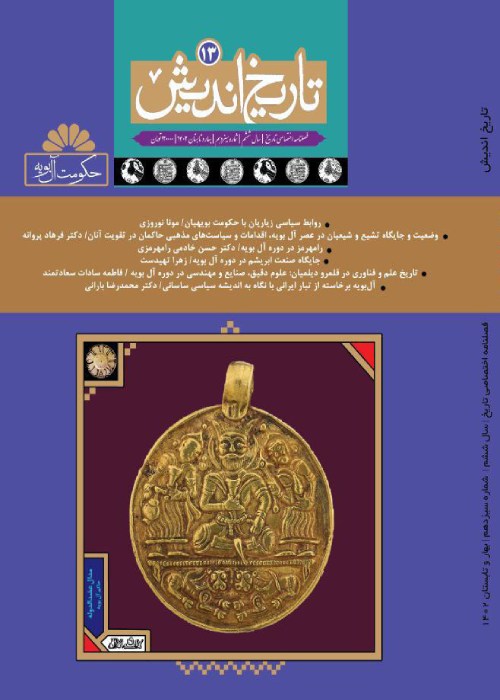The Appearance of Conspiracy Theory in Iran (From the Safavid period to the Qajars)
Author(s):
Abstract:
Although in the Safavid period there a mainly friendly relationship between Iran and Europe, there was a constant suspicion toward the Europeans. The suspicion was the result of various factors. Lack of information about Europe, the Europeans’ enjoyment with sophisticated weapon and warships, the propagandas of the Christian missionaries and the Europeans companies’ profiteering caused a constant doubt about their real aims. As a result, all of the Europeans, even the ambassadors were subject to the allegation of spying and conspiracy. As time went, mistrust and suspicions intensified and when the decline of the Safavid Ottoman governments revealed, the anxiety became more serious. The doubts caused the British and Dutch companies charged with helping the Afghan. During the reign of the Afsharid and the Zands, the Europeans were at the mercy of suspicion. In the Qajar period, suspicions and doubt about the European’s aims became more serious, resulted in the appearance of the conspiracy theory. Having used the historical method, the research is to survey the reasons and results of the Iranian’s suspicion towards the Europeans from the Safavid period to the Qajar one.
Keywords:
Iran , Europe , Safavids , conspiracy theory
Language:
Persian
Published:
Journal of Historical Thinker, Volume:1 Issue: 1, 2018
Page:
4
magiran.com/p2018169
دانلود و مطالعه متن این مقاله با یکی از روشهای زیر امکان پذیر است:
اشتراک شخصی
با عضویت و پرداخت آنلاین حق اشتراک یکساله به مبلغ 1,390,000ريال میتوانید 70 عنوان مطلب دانلود کنید!
اشتراک سازمانی
به کتابخانه دانشگاه یا محل کار خود پیشنهاد کنید تا اشتراک سازمانی این پایگاه را برای دسترسی نامحدود همه کاربران به متن مطالب تهیه نمایند!
توجه!
- حق عضویت دریافتی صرف حمایت از نشریات عضو و نگهداری، تکمیل و توسعه مگیران میشود.
- پرداخت حق اشتراک و دانلود مقالات اجازه بازنشر آن در سایر رسانههای چاپی و دیجیتال را به کاربر نمیدهد.
In order to view content subscription is required
Personal subscription
Subscribe magiran.com for 70 € euros via PayPal and download 70 articles during a year.
Organization subscription
Please contact us to subscribe your university or library for unlimited access!



